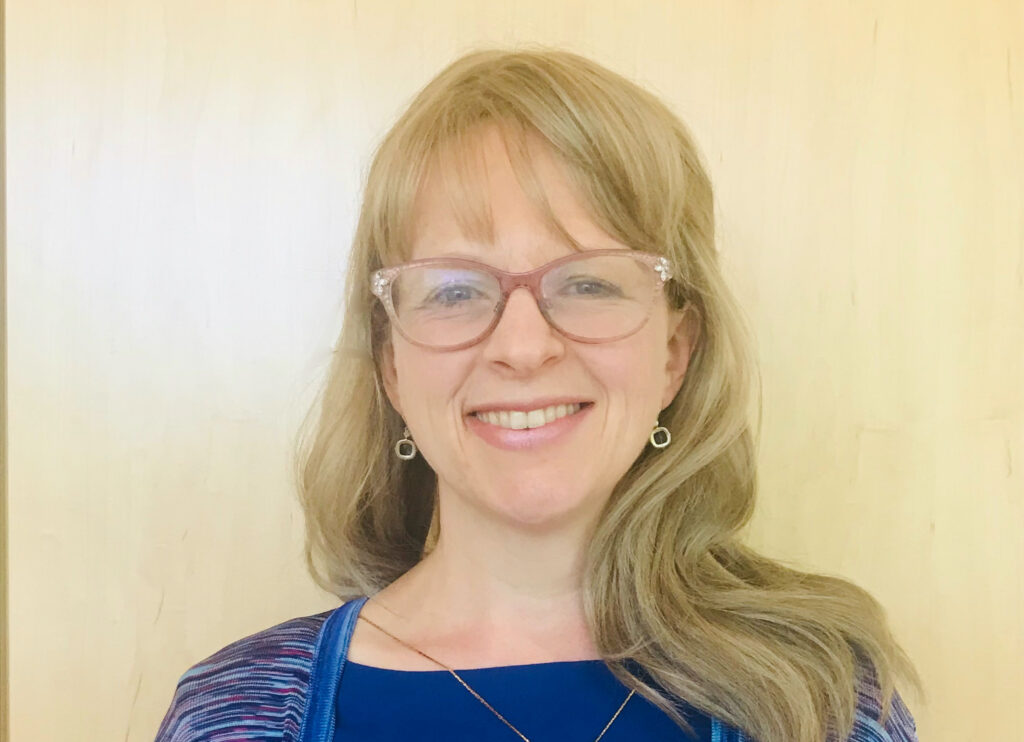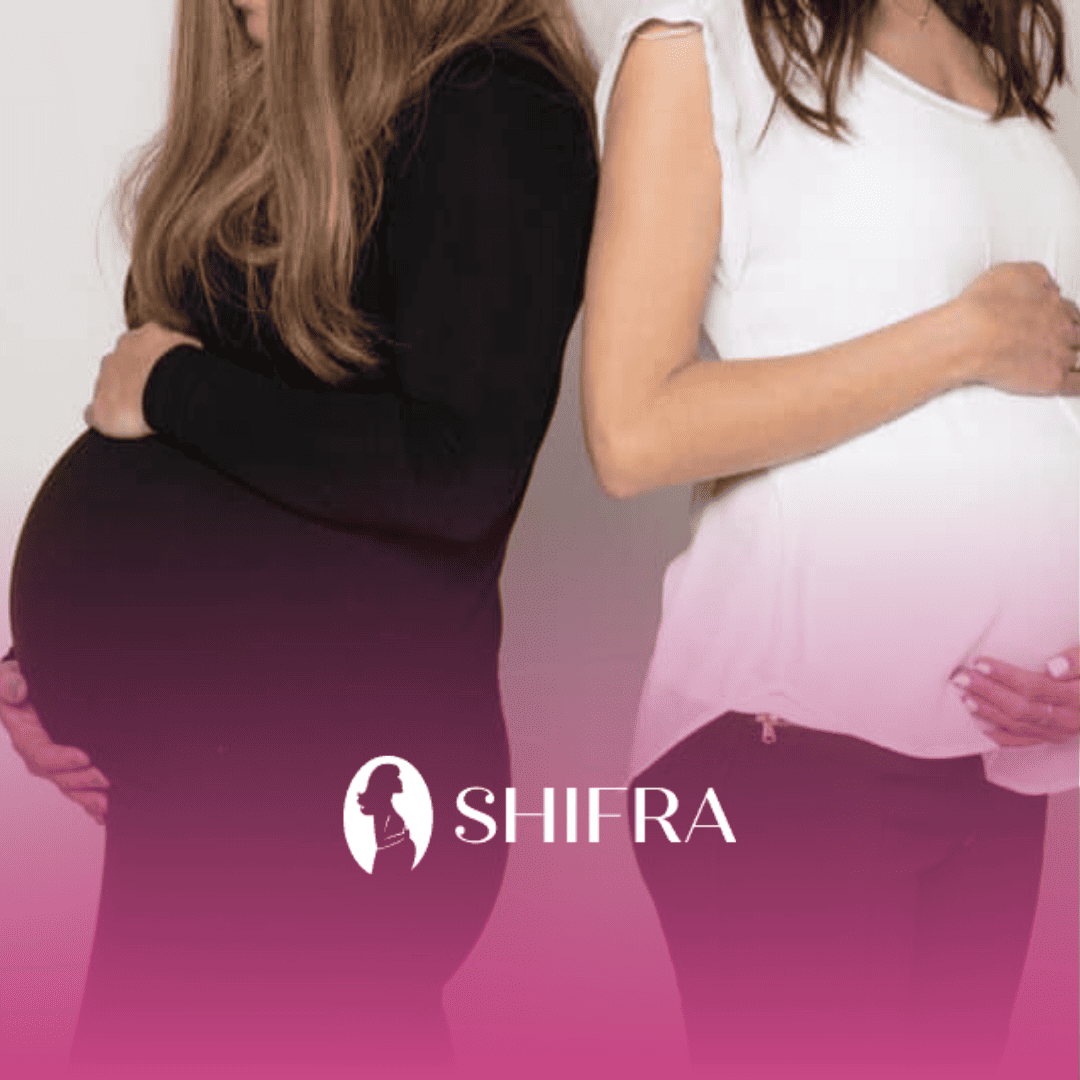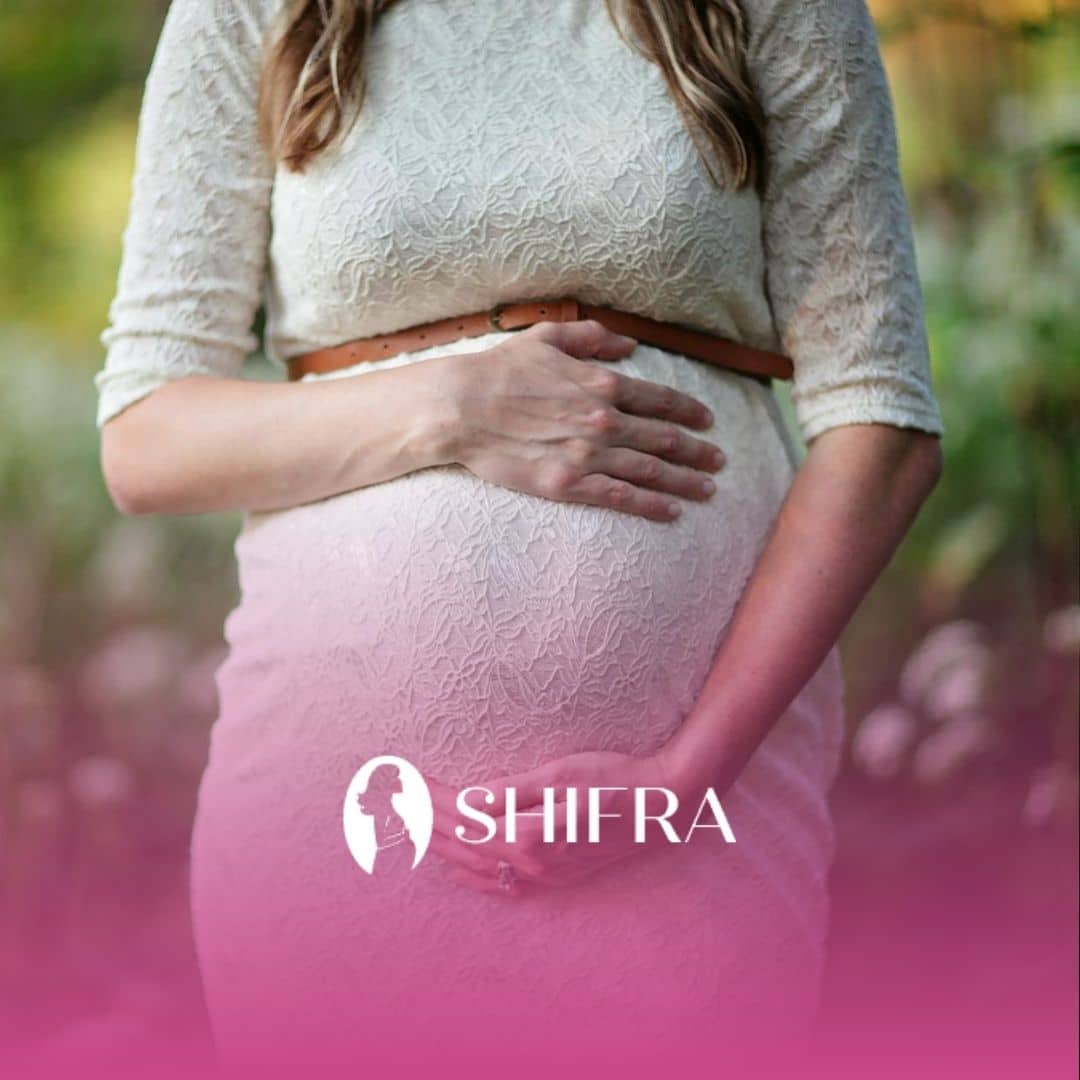“I don’t feel comfortable with abortion at all,” Dara*, who was nine weeks pregnant, told me explicitly in our first conversation.

I was the on-call volunteer for In Shifra’s Arms (ISA), and the situation sounded straightforward to me. I had recently founded ISA with a small group of both pro-choice and pro-life Jewish women. Our unique purpose was to nurture women through unplanned pregnancy crises and help them build their futures. We were not taking away any options—just expanding them. At the time Dara called, we were already assisting around a dozen women around the country who wanted support in order to continue their pregnancies.
I told Dara that she didn’t have to abort if she didn’t want to. I offered her help in finding better employment and new job certifications so she could support her baby. I also shared information about how, if she didn’t want to raise a baby now, many Jewish families yearn to adopt. I offered to connect her with a partner adoption agency.
Over the next five weeks, I witnessed shocking abuse that transformed my understanding of what it means to offer someone a choice. Dara’s ex, Joel, had gotten her pregnant and kept insisting she should abort. He justified his position by saying Jewish law prioritizes the mother’s mental health over the fetus. When Dara informed Joel that she would prefer adoption, it quickly became apparent that Joel was concerned about his desires, not her needs. She was a sex object to him, not potential wife material. Joel threatened to make Dara’s life hell if she kept the baby, insisting that she would be ruining his own life and his chances of marrying someone else. He insisted he would never sign adoption papers, since he believed that would make him a bad father.
Joel claimed that Dara should abort for her the sake of her mental health, but he created an emotional crisis by threatening her and refusing to support any other option. Every individual’s mental health, emotional wellness and stability are intimately tied to their support network. When the support isn’t there, the toll it takes is devastating. Desperate after weeks of trying to convince Joel to support adoption, Dara had an abortion early in her second trimester.
Abortion was not Dara’s first choice, but it felt like her only choice. She’s not alone. When Jewish women experience unplanned pregnancy crises in the U.S., the Jewish community does not offer sufficient support for choices other than abortion.
Jewish women who live in Israel, however, have far more resources available. Since the 1970s, two Jewish non-profits have invested heavily in helping Israeli women through unplanned pregnancy crises. Nearly 100,000 Israeli Jews, from newborns to age 50, were not aborted and are alive now because someone cared enough to offer their mothers what they desperately wanted and needed.
The American Jewish community has never united to offer this kind of support. Thousands of Jewish women have been left feeling as hopeless as Dara.
When Dara called ISA, we were a young organization and lacked the resources to give her what she needed. But her struggle and pain have shaped our efforts ever since.
“What would you need to continue your pregnancy, both before and after birth?” We have put this question in various forms to about 200 Jewish women who have called ISA to explore their options. Without a doubt, we’ve seen that targeted financial aid can be the difference between a woman choosing birth or choosing termination.
Chaya’s unplanned pregnancy was not technically life-threatening, but she and her loving husband were deeply concerned that she could not endure it. She had severe hyperemesis gravidarum, which meant she would experience near-constant severe nausea, require IV interventions throughout the pregnancy and after birth and almost certainly be put on mandatory bed rest. Financially, she needed to continue working full-time, and already had three young children. The demands on her life were intense and relentless.
Her Orthodox rabbi was also very concerned about her well-being and gave her a heter (rabbinical permission) to have an abortion. Yet she felt deeply conflicted, and chose to call ISA.
When asked what she would need to continue the pregnancy, the most significant thing was more help with her children in the afternoons before bedtime, when she would feel the sickest. ISA offered as much babysitting help as she needed and more. Chaya chose to continue her pregnancy. Our investment ended up amounting to several thousand dollars. The result was priceless.
“We cannot ever thank you all enough,” Chaya wrote us after her baby turned one-year-old.
The question, “What would you need to continue your pregnancy, both before and after birth?” leads to different answers when examining the internal catalysts of a crisis. Often the most urgent needs are emotional, not material. Many women can feel trapped in their unwanted pregnancies. They are overwhelmed by their resentment, anxiety and fear about potentially having a baby. They need someone who can listen in a non-judgmental way, without pushing any course of action or agenda. They need someone who is able to offer stable support over time, not just a single conversation. After working with Dara, ISA began offering free professional counseling throughout pregnancy and the first year after birth, as well as sensitive follow-up after termination.
Elana, like Dara, was single, terrified, pregnant and without support. If she continued her pregnancy, she would be homeless. However, when Plan B didn’t work, she decided she didn’t want to abort and asked ISA for help. “During that first conversation [with my ISA counselor],” Elana says, “I was incredibly relieved, because I had found someone who said, ‘Yes, all of the things you’re describing, all of the uncertainty, all of the fear, all of the pain, all of the unknown, that’s what we’re here for.’ Every single thing that this organization has done has been exactly what I needed.” Our counselor helped Elana access her own inner resilience and strength to navigate through the crisis, step by step. Two years later, Elana is working, happy and connected to her family and the Jewish community. She nurtures and adores her thriving toddler. “This journey” she shares, “can be the most incredible blessing even when it doesn’t look that way at all.”
Jewish ethics mandate that all Jews are responsible for one another and that we cannot ignore another’s pain and suffering. Yet over the past five decades, thousands of Jewish women in America—single, separated and married—have had unwanted abortions because they didn’t have the help they needed. Thousands of Jewish children were never born because their potential mothers lacked needed material or emotional support to continue their pregnancies. This unfathomable loss will continue unless our community vastly expands what we offer and how we offer it.
There are likely 10,000 unplanned Jewish pregnancies in the United States each year.** In Israel, the Jewish community has invested millions of dollars to help women through crisis pregnancies and after their child’s birth. So must American Jewry. Whatever the costs may be, the costs of standing idly by are immeasurably higher.
Erica Sager Pelman is the founder of In Shifra’s Arms and lives in Rockville, Md., with her husband and four children.
*Names and minor details of clients have been changed to protect their privacy.
**This statistic comes from comparing the Guttmacher Institute’s 2017 abortion rate to the female population of childbearing age who identify their religion as Jewish in Brandeis University’s 2020 American Jewish Population Report. We can assume that many abortions result from unplanned pregnancies and some unplanned pregnancies do not result in abortion.









